In memoriam Prof. Dr. János Bitó (1936-2022)
It is with a heavy heart that we bid farewell to Dr. János Bitó, professor emeritus of our university.
János Bitó was born on July 21, 1936, in Szeged. He continued his university studies at the Attila József University of Szeged, Faculty of Natural Sciences, majoring in mathematics and physics, and finished it in 1958. In 1960, he obtained a university doctorate with summa cum laude in the same place. In 1967, he was awarded a candidate of technical science, and in 1971, a doctor of technical science.
Between 1958 and 1974, he was a scientific associate, senior associate, and head of the "Plasma and Electron Physics Department", head of department, scientific director and member of its Scientific Council at the Research Institute of the Broadcasting Technology Industry (HIKI, its legal successor from 1968, the United Incandescent and Electric Co.Ltd. Research Institute) . Between 1971 and 1986, in "TUNGSRAM Co. Ltd.", he was head of the technical department and then technical director of development. The research conducted under his leadership was of decisive importance in the development of the company's low-pressure discharge fluorescent tubes.
From 1965, he participated in the graduate and postgraduate education programs of ELTE TTK, in 1986 at Eötvös Loránd University of Natural Science became a titular university professor. During this period, his educational activities were closely related to his industrial research in plasma physics, which led to the development of a time-resolved plasma diagnostic probe measurement method for arc discharges, the microparameters – electron and ion temperature, electron and ion concentration, degree of ionization, etc. He developed the cathode-side model of oxide-cathode arc discharges, revealed the basic relationships between electron emission, cathode-side spaces and the size of the positive column, and the cathode-side field strength distribution. He created a scientific school by introducing discharge physics and plasma diagnostic research and by starting the research on discharge lasers, which directly and indirectly enabled the scientific preparation of domestic scientists, researchers and developers of domestic discharge laser research. He is also credited with the foundation of domestic optical thin film research from this period.
From the 1980s, he turned his attention to the industrial application, production and research of control methods of robots. With the purchase of the PUMA license and Fairchild electronic research and production equipment by TUNGSRAM in 1980, he founded domestic robotics research. Under his leadership, the development of SCARA-type robot controllers based on the domestic electronic component base, the technology and start of serial production, and the export of these products from 1983. From 1984, he managed the developments aimed at controlling the spot, then the line welder, and then the painting and assembly robots. From 1986, with the establishment of the "Centre of Robotics and Automation" (CRA), he coordinated domestic robotics research, development and production organization, including the establishment and operation of international scientific and industrial relations. He participated as an EU and UN expert in the international coordination of robot research and application. Between 1990-1993, in "TUNGSRAM T.H. Co. Ltd." he was deputy general manager, between 1993 and 1994 he worked as deputy director of "GE-TUNGSRAM Co. Ltd."
In the years of the polytical and economic regime change in Hungary, as indicated by the changes in the company's name, TUNGSRAM changed owners, and at the same time, robotics technologies previously unavailable to the country became available with the involvement of foreign manufacturing companies. As a consequence of this, the former robotics industrial production and development tasks fell out of the company's scope of interest, but the tasks of educational development, maintaining the domestic research team that understands new technology and supporting its further development became more important. János Bitó also performed significant work in this process by performing the duties of the presidency and secretariat of the Hungarian Robotics and Automation Committee, and by introducing domestic scientific robotics research and education. Managing nearly 10 candidate aspirants and leading their postgraduate training, preparing about 40 reviews of theses submitted for the award of a scientific degree, and participating in more than 100 cases in the review committee of candidate, PhD and academic doctoral defenses, with his work in the Scientific Qualification Committee at the Department of Technical Sciences of the Hungarian Academy of Sciences, and OTKA Jury.
In 1993, János Bitó relocated the CRA organization to the Bánki Doná Technical College, one of the legal predecessors of our university. Our current prides, the Antal Bejczy Center of Intelligent Robotics, and the University Research and Innovation Center (EKIK) later developed from this organization, mostly thanks to the efforts of the growing, younger generation, whose work he actively supported until his death.
János Bitó was a member of many important organizations in international scientific public life. It should be noted that he was the vice president of IEEE HS between 1994 and 1998, as a member of the Robotics and Automation Society. He participated in countless scientific conferences as a speaker and organizer. In the last few days, the Hungarian Library of Scientific Works (MTMT2) registered more than 270 publications in his name. His recognition is indicated by the following prizes and awards: "Imre Bródy Award", Loránd Eötvös Physics Society, 1967; "Pro Mundi Beneficio", Medal of Merit and Diploma, Academia Brasileira de Ciencias Humanas, 1975; "Two Thousand Man of Achievement", Award and Diploma, 1973; Gold Medal of the Scientific Knowledge Society, 1984; "Eötvös Loránd Award", Hungarian Council of Ministers, 1991; "2000 Outstanding People of the 20th Century" (Cambridge, UK); 1997, Dénes Gábor Award, 1997.
The staff of our university remember János Bitó with gratitude and respect.
Rest in peace!



